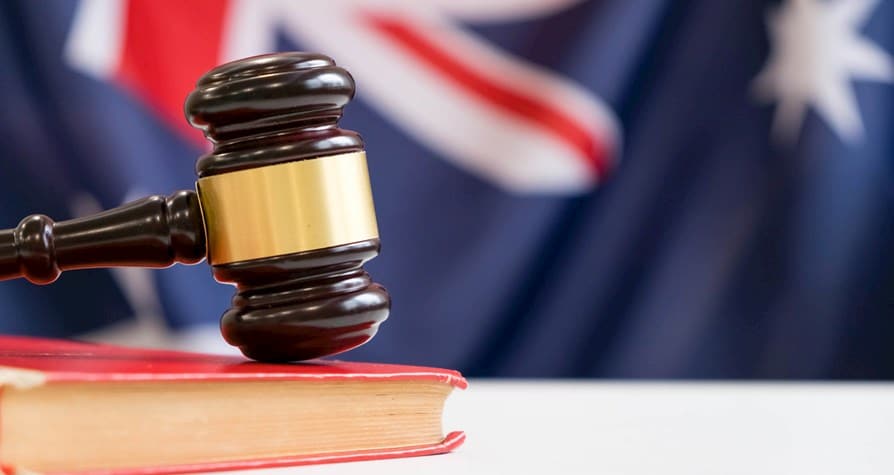Have you ever wondered why so much about law seems “technical”. Courtroom dramas are full of lawyers jumping up and down saying “objection, your Honour”, and then the judge responding “Overruled” or “Sustained”.
You can spend hours, even days, in a court and hear lawyers arguing about what seems like a microscopic point. Maybe it’s an argument over the meaning of a single word. There is even an appeal court case about the meaning of the word “and”!
Many people look at courts and their decisions and ask themselves “why do they get bogged down in all this, at someone’s expense: why don’t they just do justice?”
In this article, we explain why courts and legal processes in countries like Australia are this way; and why it is a lot better than the alternative!
The Rule of Law in Australia
It all goes back to an ideal called the rule of law. Our modern sense of it came out of England and some other European countries. It didn’t come easily. King Charles 1 of England was beheaded in 1649 because he thought he had a divine right to rule. Parliament and a growing number of people wanted government, including kings, to be under laws. Over the centuries people have fought and died for this idea, and they are still doing so in some parts of the world.
The rule of law and the idea of democracy go hand in hand. Only about half of the world’s 167 countries can reasonably be thought of as democracies. In the other countries, when push comes to shove, it is hard to imagine a court going against the wishes of the ruler, whether it is a monarch or a party. Those countries might rule through laws, but that doesn’t mean the rule of law exists there.
In a democracy, governments are elected by a majority of those voting. That gives the government the right to make and change laws, but governments don’t get to decide whether someone has broken them. This is done by judges in courts, who are independent from the government. This is why sometimes you can see a Prime Minister or a US President be very critical of a decision by their country’s highest court. Really, they should just keep quiet, but anyway they can’t do anything about that decision. All they can do is try to change the law for the future.
Sometimes, the High Court of Australia actually strikes down a law made by the Australian Parliament because that law goes against an even higher rule in the Australian Constitution. The Constitution itself cannot be changed without sufficient majorities in a referendum of the people.
So far, so good. Democracies like Australia rule by law not by the whim or personal preference of a dictator. And in democracies like Australia, governments themselves are under the laws which are applied by independent judges.
Why is the Rule of Law so Technical?
Now we go back to where we started. Why is it all so “technical”? Why can’t judges simply decide what they think is the most just outcome?
It basically comes down to freedom. People are treated as having rights and liberties which can’t be taken away just because someone with power doesn’t like them or what they have done. They can only be taken away if there is a clear law or rule which allows it, and that decision is made by an independent judge who does not have to worry about what the government of Australia or a state thinks of them.
Even then, the judge has to make their decision using a procedure that itself is governed by laws. In Australia, the courts use an adversarial system, which is described in a separate article. [URL to that].
The adversarial system has rules about who has to prove what, who can say what, when the judge has to stay in line with what other judges have decided in previous cases (“precedents”) and many other detailed requirements. In criminal cases, the rules of evidence go into great detail about when something can be regarded as a fact, when it is safe to rely on what someone says, and many other issues.
It is understandable that people can sometimes be in a courtroom and want to throw their hands in the air with frustration at how slow, nitpicking and irrelevant it all seems. There is definitely room for improvement but if you start moving away from rules, you risk the freedoms that people fight and die for, and we should all cherish them.
The Different Dimensions of the Rule of Law
The rule of law has some other dimensions. Laws must not be too vague, or else someone could be punished for something they could not reasonably know was wrong. Laws must be made public, so that everyone has a chance to find out what is required of them. Laws must have effect only for the future. For example, someone cannot be punished for doing something which at the time was not a crime.
In other articles we see how everything flows from this central idea of the rule of law and its various dimensions. We look at topics such as why it is up to the police or prosecutors to prove their case, how clearly do they have to prove it, why many laws require a person to intend to break them, or be reckless whether they are breaking them or not, before they can be convicted.
Galbally Parker Criminal Lawyers
If you are under arrest and looking for a criminal defence lawyer, contact our office. Our team has experience in a range of different areas of the law, including, but not limited to, organised crime, criminal appeals, assault, murder and manslaughter, drug offences, fraud, and customs offfences.


